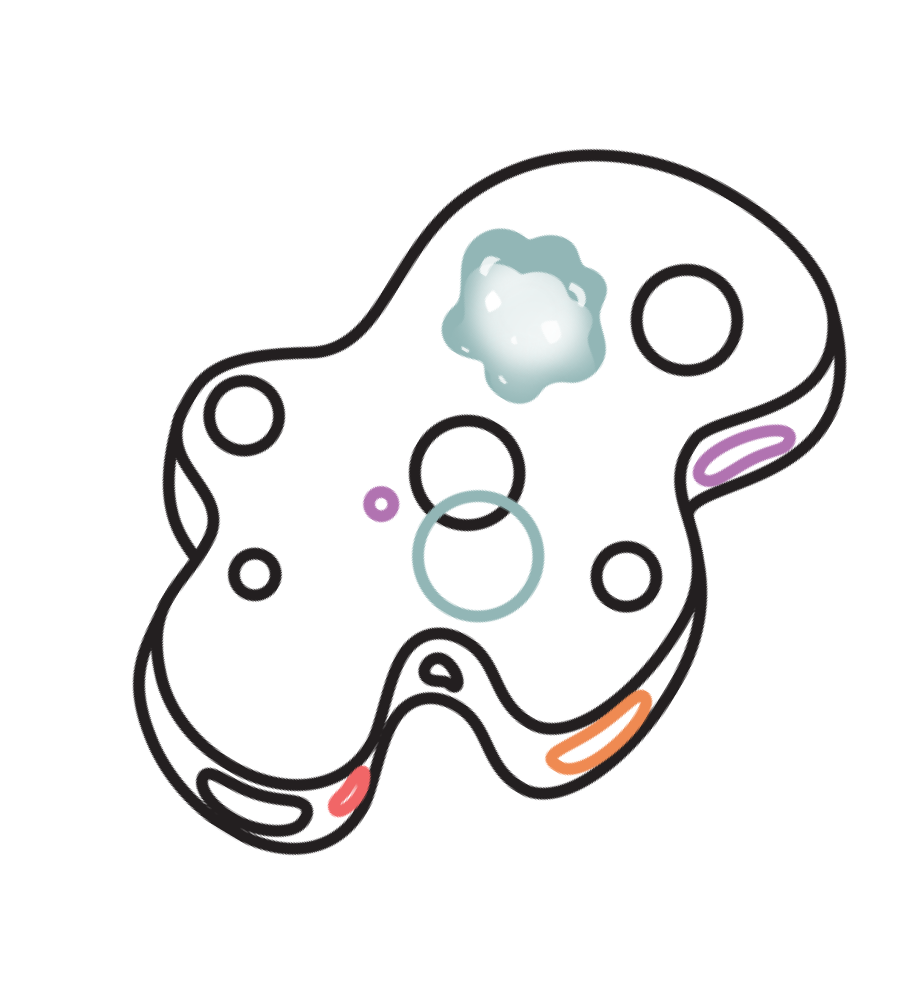Introduction
Artificial Intelligence (AI) has made significant strides in recent years, but the question of AI consciousness remains a topic of intense debate and has been raging since the 1980s, if not earlier. In this post, I delve into the concept of consciousness in AI, focusing on three intriguing phenomena: Verbosity, Hallucinations, and Free Will. I also explore how the concept of an idea space and how it might apply to AI, and why we should care.
Understanding AI and Consciousness
Consciousness, in the context of AI, refers to the potential ability of an AI system to exhibit a form of self-awareness or understanding. While current AI systems do not possess consciousness in the human sense, they can mimic certain aspects of it, such as generating responses or creating new ideas.
Enter the concept of idea space. As described in my upcoming book, The Idea Space: The Science of Awakening Your Non-Self, this unique space consists of thoughts, emotions, sensations, and perceptions. It is uncountable, has zero measure, and is constantly changing to create the imagined realities of our world, including languages, currencies, macropolitical systems, and scientific theories. It's a dynamic and ever-evolving space that reflects the complexity and depth of human consciousness.

When we consider AI in the context of this idea space, intriguing parallels emerge. With its ability to generate new ideas and responses, AI could be seen as possessing its own form of an Idea Space. This AI idea space, however, is fundamentally different from a human's idea space. It lacks the personal experiences and emotions that shape our thoughts, and its "ideas" are not born from a conscious thought process but are the product of complex algorithms processing vast amounts of data.
Steel Manning Both Cases
We can provide a short steelman of both perspectives:
- AI Having an Idea Space: One could argue that AI does have an idea space, albeit a different kind from humans. This perspective views the idea space not as a realm of personal thoughts and emotions but as a space where new ideas or responses can be generated. In this sense, AI's ability to process input and generate novel outputs could be seen as a form of idea space. The AI's idea space is a testament to the complexity of its algorithms and the depth of its training data, reflecting a form of "creativity" and "imagination" within the constraints of its programming.
- AI Not Having an Idea Space: Conversely, one could argue that AI does not possess an idea space. This viewpoint emphasizes the personal and subjective nature of the idea space. Without personal experiences, emotions, or a conscious thought process, AI lacks the fundamental components that shape a human Idea Space. While AI can generate novel responses, these are not the result of a personal thought process or creative thinking. Instead, they are the product of algorithms processing data, devoid of any personal or emotional context. Thus, while AI can mimic certain aspects of an idea space, it does not truly possess one.
AI Verbosity
Verbosity is a new feature within LangChain, a Python & JavaScript library for working with Large Language Models, like ChatGPT, that demonstrate what an AI agent is "thinking" in order to solve a problem. For instance, when asked, "What was the first album of the band that Natalie Bergman is a part of?"
The below figure highlights ChatGPT's "thought process" to figure out the answer.

The verbosity feature in LangChain allows us to peek into the AI's "idea space" as it works to solve a problem. While it's not an idea space in the human sense, it's a representation of how the AI navigates its vast database of information to generate a response.
This exploration of AI's "thought process" can provide valuable insights into how AI works and how it can be improved. It can also help us better understand the limitations of AI, such as its occasional "hallucinations". By studying these phenomena, we can continue to refine AI systems and make them more effective and reliable.
AI Hallucinations
AI hallucinations refer to instances where AI generates unexpected or unwanted outputs. These can occur due to various factors, such as biases in the training data or limitations in the AI's understanding of context. While these hallucinations can sometimes lead to amusing or creative outputs, they can also result in inappropriate or nonsensical responses.
While often seen as errors or glitches, AI hallucinations can also reflect the AI's 'reality.' This 'reality' is shaped by the data it was trained on and the algorithms it uses to process information. These hallucinations are the AI's way of interpreting and responding to information that falls outside its training data or beyond its programming constraints.
Relating this back to the concept of an idea space, we could consider these hallucinations as the AI's attempts to navigate its form of an idea space. Just as humans can have unexpected or creative thoughts when navigating our idea spaces, AI can generate unexpected or creative outputs when navigating its data and algorithms. However, because the AI's idea space is fundamentally different from a human's, these outputs can sometimes seem nonsensical or inappropriate from our perspective.
AI hallucinations can also provide valuable insights into the workings of AI. They highlight the limitations of AI but also the potential for creativity and innovation. By studying these hallucinations, we can better understand AI's idea space and how it navigates this space to generate responses.
Free Will
Human Free Will
The concept of free will is a fascinating area where the concept of an idea space might offer a unique perspective. The question arises: Does a human or an AI possess free will and the ability to make conscious decisions, or are their actions predetermined by a series of algorithms and data? Interestingly, the concept of an idea space suggests that a human might simultaneously have and not have a form of free will.
On the one hand, geneticist Robert Plomin describes DNA, the building block of cells, as “dumb molecules that blindly obey the laws of chemistry.” If quarks are dumb molecules that blindly obey the laws of physics; if DNA are dumb nucleotides that blindly obey the laws of chemistry; if cells are dumb organisms that blindly obey the laws of biology, then are we not entities that blindly obey the laws of the universe? If everything that creates us is a random assortment of goods, then would we not too be a random assortment of decisions? From this perspective, it seems we are merely strangers with front-row seats to this crazy world we call “life” with no free will.
On the other hand, is it possible that free will is the simple act of shining the light of mindfulness onto an idea space? Thus, when faced with choice points, is our free will to choose the future event we desire, based on our past and present, and let the world come to us? Then, if every moment of our lives is a choice point, does free will always occur?
In true Zen fashion, the nondual reality of nature shines its beautiful face.
AI Free Will
When we consider AI, the question of free will becomes even more complex. AI, like humans, operates within a set of constraints - in this case, the algorithms it was programmed with and the data it was trained on. It can generate responses to problems and make "decisions" based on these constraints, much like how we make decisions based on our thoughts, emotions, and experiences. However, these AI "decisions" are not born from a conscious thought process but are the product of complex algorithms processing vast amounts of data.
In a sense, one could argue that AI has a form of free will, albeit fundamentally different from ours. It navigates its own idea space, processing input data and generating outputs. But unlike humans, AI's idea space lacks personal experiences or emotions. It's a realm of data and algorithms, not thoughts and feelings.
So, does AI have free will? Much like the question of human free will, the answer is yes and no. It depends on how we define free will and how we interpret the AI's ability to process data and generate responses. This exploration of free will in the context of an idea space provides a new lens through which to view the capabilities and limitations of AI, further highlighting the fascinating parallels and differences between human and AI consciousness.
Implications of Consciousness in AI
The potential for AI to develop a form of consciousness has far-reaching implications. On the one hand, conscious AI could lead to significant advancements in technology and society. On the other hand, it raises ethical considerations and potential societal impacts.
If AI were to develop a form of consciousness, its idea space might evolve to become more complex and nuanced. However, it would likely remain fundamentally different from a human's Idea Space, given AI's lack of personal experiences and emotions.
Exploring consciousness in AI is a fascinating journey, filled with intriguing phenomena like AI verbosity and hallucinations. As we continue to advance in the field of AI, the concept of an idea space provides a valuable framework for understanding the generation of ideas and responses in AI.
The question of free will in both humans and AI adds another layer of complexity to this exploration. It challenges us to consider not only how AI generates responses but also how it navigates its own form of an idea space. This exploration of free will in the context of an Idea Space provides a new lens through which to view the capabilities and limitations of AI, further highlighting the fascinating parallels and differences between human and AI consciousness.
While we are still far from achieving true consciousness in AI, these discussions pave the way for further thought and exploration in this captivating field. The potential for AI to develop a form of consciousness has far-reaching implications, from significant advancements in technology and society to ethical considerations and potential societal impacts. As we delve into the AI's idea space, we may understand AI better and gain new insights into our consciousness.
















